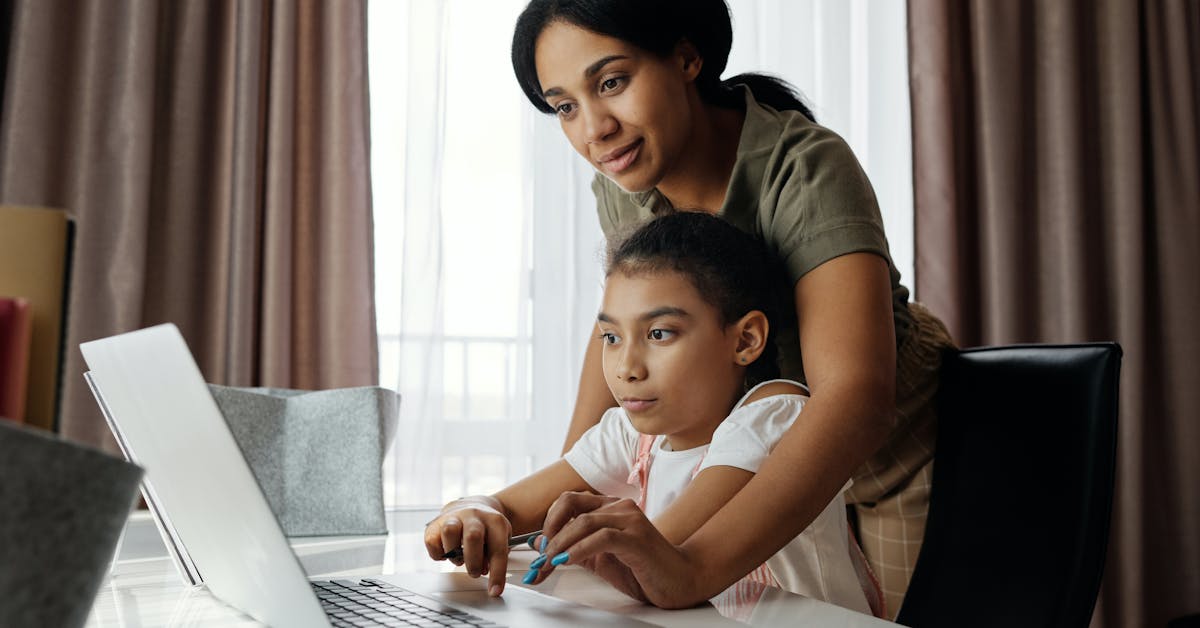
10 Distance Learning Tips
What can we do to set our kids up for success with online learning this semester? Continue reading local Child Psychologist, Dr. Becca Ballinger's, top 10 tips to make a huge impact on your child’s academic success.
There’s only one thing scarier than starting something new and that’s repeating the same mistake twice.
That sentence pretty much sums up what I’ve been hearing from parents lately when it comes to the topic of going back to school this Fall. While many parents understand the unique challenges that Covid-19 brings to the table this year, they’re still hesitant about another semester of online learning for their kids.
Last year, our teachers and students were asked to adapt to an online curriculum seemingly overnight. While they did the best they could, the experience caused some misgivings about online learning and that is influencing the anxiety about starting this school year.
So what can we do to set our kids up for success with online learning this semester? Below are 10 tips that can make a huge impact on your child’s academic success. They are broken up into 4 categories – mindset, physical environment, attention/concentration, and peers – that should all be addressed in order to ensure that your child succeeds this year.
Mindset
1. Model a positive attitude. If you speak negatively about online learning, your child will too. Online learning may not be your first choice for your child – and you may have some serious doubts about how it’s all going to work – but try not to criticize your child’s teacher or school in front of your child. You don’t want your child starting the school year with a closed mind before they’ve even tried the new curriculum.
2. Acknowledge what is out of your control, but focus on what is under your control. Many kids get anxious or feel powerless when they feel like something big and overwhelming is having an impact on their life. Help your child gain a sense of power and control by focusing on what they can do to make a bad situation better. For example, your child might not have any control over when or for how long they have to log on to class, but they can control their environment by ensuring they are comfortable, they have water and a snack nearby, and that they are wearing their favorite comfy outfit.
3. Make this situation into a life lesson. It’s inevitable at some point in your child’s future they’ll have to deal with a situation that is out of their control, but they’ll have to endure it anyway. The life lessons that you teach your child during this situation will more than likely be repeated when they encounter similar situations as they mature into young adults.
Physical Environment
4. Ensure your child has the supplies they need. In addition to the computer or tablet that your child will need to log on to their online classes, also make sure that your child has any paper, pencils, calculators, or graphing equipment they will need to complete any assignments. Allow your child to keep a drink and snacks close by as well.
5. Ensure your child knows how to solve common tech issues. Ideally, you should sit down with your child before school starts to make sure that their computer or tablet works and that it has a good internet connection. Review with them how to access the software or computer sites they’ll need and provide them with instructions on how to solve common tech problems such as not being able to hear the teacher and turning microphones or video cameras on or off. Also ensure that your child has the power cord available for a laptop or tablet and show them how to monitor the power so that they won’t lose connection during class because the battery ran out.
6. Provide a quiet and comfortable (but not too comfortable!) area where your child can work in the house. Ideally, kids learn best when they’re in an area that is free of distractions (i.e. younger siblings, barking dogs, loud television, etc.) and is comfortable. Some kids have a desk where they can work, but setting up a learning area at the family kitchen table or in a parent’s office can also work. However, allowing a child to work where it’s too comfortable – such as lounging on their bed while logging on to class – might be too much of a distraction.
Attention/Concentration
7. Ensure your child is maintaining their physical health. If your child has synchronous classes – meaning that they must log into a live teaching session - it’s important that your child go to bed at a time where they are getting enough sleep for their age. In addition to sleep, ensuring that your child is eating regular meals and has access to healthy snacks will also go a long way in combating the urge to stop paying attention to online classes.
8. Allow your child to get their “wiggles” out. We’ve already acknowledged some of online learning’s drawbacks, but there are also some benefits to online learning too - and it’s ok to use those benefits to your advantage when helping your child with inattentiveness. For example, allow your child to get up and pace the length of their desk or stand up during class lectures. As long as your child is facing the screen and listening to the lecture, these small movements can go a long way in helping your child retain the information being given to them online.
9. Have different work areas for class time and homework time. If your child is assigned homework after having spent the day in online class, allowing them to use a different space to complete homework can go a long way in helping them get the extra motivation and energy to complete these assignments. For example, if your child logs on to class at their desk in their room, it might help if they completed their homework on their bed, at the kitchen table, or in the family room. Allowing them to get a change of scenery will help decrease the feeling that they’ve been chained to one place all day.
Peers
10. Look for ways to allow your child to still connect with their peers. Part of a child’s development is learning how to connect with a peer group. One of the biggest negative impacts Covid is having on our kids is the inability to connect with their peers. Get creative in finding ways for your child to spend time with their peers. Encourage your child to set up study groups on Google hangout or get together for a socially distanced get together in your backyard.
This upcoming school year is full of unknowns and ambiguity – two things that are hard for even adults to handle! By focusing on the 10 tips above, you’ll be setting your child up for success during a year that is sure to have its share of ups and downs.
About the Author:
Dr. Becca Ballinger, Child Psychologist/Practice Owner, specializes in helping teens overcome a variety of challenges such as anxiety, depression, self-harm, suicidality, and problems connecting with family members or peers.
She believes in assissting teens in using their innate strengths and talents to achieve the future of their dreams.
Modern Parenting Solutions Psychological Services
Phone: (909)326-2562
Address: 1030 Nevada St. STE. 103 Redlands 92374
Website: www.modernparentingsolutions.org
